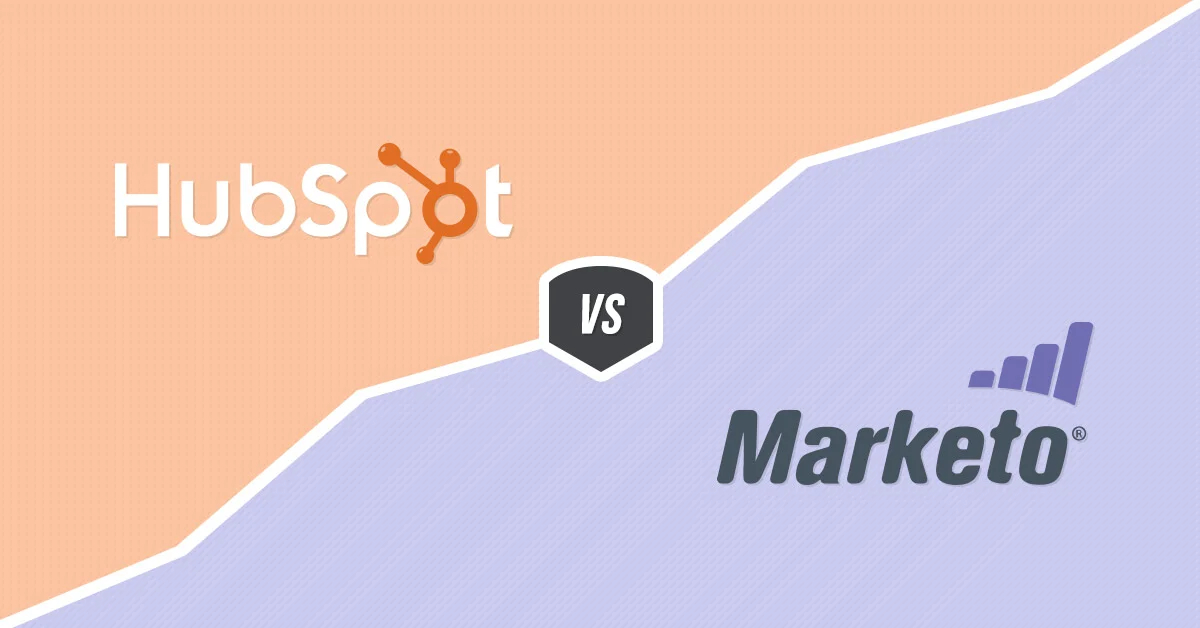With the increase of digitalization worldwide, we can easily observe that more and more people prefer online shopping to get crowded in the markets. They tend to spend more valuable time with their families and friends or just being alone when going out. The businesses adapted and started increasing their presence online and engaging with their customers by email.
The term Digital Marketing was first used in the 1990s. Since then, it has gained more attention and become an essential part of any Marketing Strategy. It requires a constant connection with your current and potential customers and the market. But this takes time.
To save time from having to perform mundane and repetitive tasks and gain more time for creativity, software companies have created marketing automation software platforms. Out of all of them in the market, HubSpot and Marketo are two of the most popular platforms that are very similar.
Both have multiple features and serve as a Software-as-a-Service (SaaS), but when it comes down to choosing one of them, it depends on which one is the best fit for your business. Let's see some of their similarities and differences, pros and cons.
About

HubSpot is a software company and inbound marketing system that helps businesses grow traffic, convert leads, close deals, and grow business.
With more than 158.000 customers across more than 120 countries, HubSpot's market share is 38.43%, according to datanyze.com.

Marketo is a marketing automation platform. It features email, consumer, customer base, and mobile marketing and includes lead management tools.
More than 17.350 companies reported using Marketo in their tech stacks, bringing a 2.95% market share, according to datanyze.com.
Is it a CRM platform?

It is a CRM platform that is designed to scale your business. From a one-person company to a 2,000+ employee enterprise, The HubSpot CRM platform has the marketing, sales, customer service, operations, and content management features you need to build the best customer experience.

While Marketo doesn't provide a built-in CRM module, it was built using the Salesforce platform, which means they offer some of the best integration in the industry. They also offer native integrations for Microsoft Dynamics and SAP and certified integrations for NetSuite, Oracle, and SugarCRM.
It helps you automate and measure marketing engagement, tasks, and workflows.
ERP integration

Any data integration processes between HubSpot and ERP or proprietary systems are easy to implement, for it is intuitive to use all its five core products. It can easily be integrated with the most popular systems such as Salesforce, Microsoft Dynamics, Zoho, and many more.

Being built with Salesforce means that Marketo offers the best and most innovative Salesforce integrations and can integrate Microsoft Dynamics and SAP. Also, Marketo Engage now integrates with SAP’s Cloud4Customer (C4C) CRM for shared visibility across sales and marketing teams.
HubSpot versus Marketo: Opportunities
Learning options

HubSpot Academy is accessible to its customers and is still regarded as one of the world's best online learning sources. HubSpot also offers certifications in inbound marketing and related topics.


Marketo University provides a variety of free courses to assist users in getting started. Also, the certification program for Adobe's products helps users develop their technical skills.

Support Communities

With many diverse customers, HubSpot Community enables you to get in touch and find answers and support to any situation you face. With more than 18.000 users, HubSpot online platform connects marketers and sales pros worldwide.


Marketo Community has experienced users with more technical knowledge that can offer support depending on your situation.

Each system has pros and cons depending on your business's current and future needs. Considering your goal, you may choose one solution at the beginning, and after achieving the growth goal you have set, you can switch to a different one. Let's see some pros and cons for HubSpot and Marketo.
Amongst HubSpot’s advantages, you can look at the following:
- User-friendly platform – useful for any beginner who wants to work with it.
- User-friendly dashboards.
- Fourteen days free trial – to see if this is what your business needs.
- All-in-One Sales platform. – you can reduce the communication gap between the marketing and sales team.
- All-in-One, Multi-channel Marketing: automated marketing workflows, build innovative content, and more ways to segment your customer.
- Account-based marketing (ABM) tools and automation.
- Website Building Software.
- Tested Integrations – extensive library of available integrations.
- The HubSpot API (Application Programming Interface) provides quick and effortless integration with other apps in the stack.
- You can use the bots to send automated responses to visitors.
- Various pricing tiers – depending on your Digital Marketing Strategy.
- It is a good fit for small and large teams with multiple skill sets and experience.
Looking on the other side of the coin, HubSpot’s disadvantages are:
- By being an All-in-One Solution, you must rely only on their features.
- Costly Add-Ons.
- Challenging to deploy customizations.
- Enterprise Package – Essential Features for event-based segmentation are available only for this tier.
Amongst Marketo’s advantages, you can look at the following:
- Multi-Channel Marketing.
- Automation meets personalization.
- It makes it easy to include Forms Registration Forms on your landing pages.
- The mobile-optimized ad for various mobile devices to optimize business strategies.
- It enables you to create automatic tasks along with real-time analysis.
- Track Marketing ROI (Bizible).
- Mobile Integrations.
- Sales Force Integration.
- A good fit for advanced enterprise teams.
Looking on the other side of the coin, Marketo’s disadvantages are:
- It doesn't have a trial version.
- Not All-in-One Solution.
- Poor Content Creation UX – it is not so easy to use if you do not have any technical knowledge and skills.
- Slow Adoption – requires a bigger team who can allocate more time to using it.
- Limited Integrations – with other ERP or proprietary systems.
- It may require a dedicated developer and designer for Marketo to provide additional support.
In conclusion, look at your business goals and choose the right option!
If you're looking for a free and low-priced entry-level plan, HubSpot is the best fit for small businesses and solo entrepreneurs. The Professional and Enterprise plans are more suitable for medium to large enterprises for it offers more analytics and management features.
Marketo is a strong choice for mid-to-large-sized businesses using Salesforce or Microsoft Dynamics 365. It offers the possibility to personalize your workflows and templates as much as it is needed while handling complex marketing campaigns.








